A NEW BANGLADESH
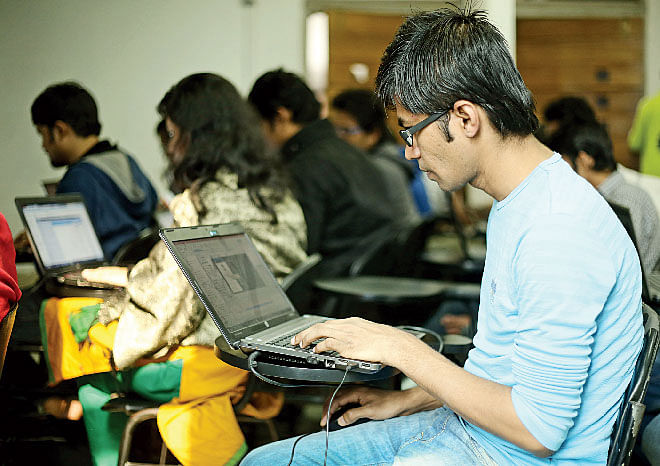
For more than half a decade “Digital Bangladesh” has become the new mantra of development. The widespread use of the term clearly signals the government's emphasis on the development of the information and communication technology. Accordingly, the government has formed a separate ministry in 2011 and has employed huge amount of resources in several projects.
Guided by the State Minister Zunaid Ahmed Palak, Md Nazrul Islam Khan, secretary of the ICT division of the Ministry of Posts, Telecommunication and Information Technology (MoPTIT) is leading the team that is working to achieve the dream of digital Bangladesh. Khan says, “Our biggest achievement is that we have created a generation mentally ready and fit for adopting any technological challenge. Many people might think that development in ICT sector means donating more computers but I think developing human potential in this sector is the most important task.”
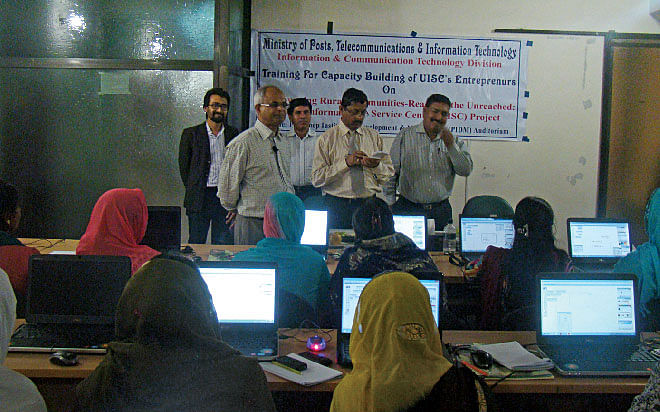
The government has targeted the educational institutions first. In this project Khan came up with his innovative idea of turning regular classrooms into multimedia classrooms. After several experiments, it has now created a revolution in Bangladesh's education system. More than 20,000 schools all over the country have been provided with laptop and multimedia projectors and teachers of these schools have been trained to develop multimedia content for their students.
In cooperation with the project, the education ministry has digitised textbooks and has published on the website of the National Curriculum and Textbook Board for free download. In cooperation with BRAC, the government is also working to make textbook into movies, which will be helpful to make the learning process more fun.
Students of many remote areas of the country are now beneficiaries of the new multimedia contents. But introducing our youth to the technology is only the beginning. So the government is running a country-wide programme to train youth to get jobs all over the world. Officially called Learning and Earning Development Project, it focuses mainly on college and university students. Under this project, the ministry is training the youth about the ins and outs of outsourcing jobs. Khan, the secretary of the ministry says, “In the first phase we have trained 15,000 youngsters in district level and in 2012, these trained youngsters have earned USD 20 million by working in different kinds of outsourcing projects and in 2013 it has increased up to USD 50 million.”
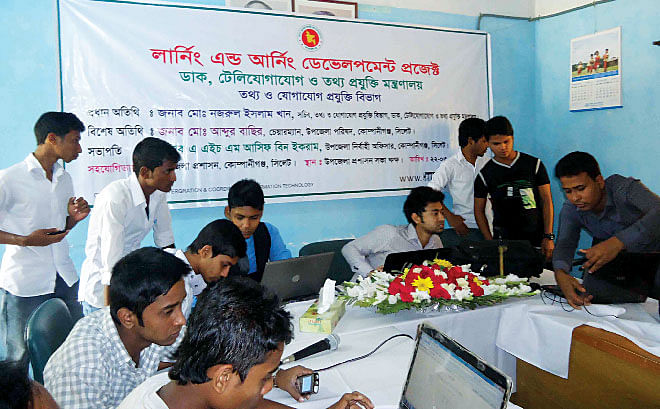
Training youngsters for income generating activities is a remarkable initiative for this country of ever increasing unemployment. Md Tobarak Hosen, a student of Pabna Edward College, says, “In Pabna there is hardly any job for new graduates. Without this training my future would be as bleak as that of many other educated but unemployed graduates. Now I don't have to look for work as I have a constant supply of work online.”
One of the significant additions to this project is a programme for women that enables them to get outsourcing jobs. Titled “Bari Boshe Borolok”, it trains young women of different districts and Upazilas in skills needed for outsourcing. Md Nazrul Islam Khan, the guide of all these programmes, says, “We have emphasised on outsourcing activities because besides earning foreign currency, it's also a knowledge based approach. By engaging in them, our youth are also developing their skills and capacity as global citizens. Soon we will reach every Union with our training programmes and modify each of our Union Information Centre as Outsourcing Centres.”
Union Information and Service Centre (UISC) is also a significant milestone for the government's goal to achieve digital Bangladesh. These UISCs are one stop service outlets operating in 4547 Union Parishads, the lowest tier of local government. At these centres, a citizen can get most government services like public exam results, downloading government forms, online application and university admission, population census data, livelihood or employment information and also photo and mobile phone services.
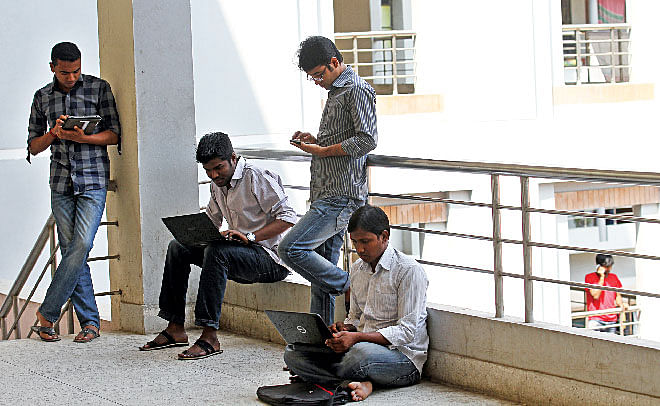
The efficacy of such automated services is a significant step towards achieving e-governance. After offering several online and automated services, the government is planning to bring the whole governance system under one public network called Bangla Govnet. The primary objective of the project is to ensure internet connectivity in all the districts of Bangladesh by 2014. A National Data Centre is also going to be established to host all the government websites and administrative offices and to connect the offices with each other. An independent national certifying authority has been formed to digitalise official signatures and other information. To prevent this huge virtual establishment from intruders and hackers, the government has also formed a strong army of cyber security experts under the MoICT.
Besides making government services available online, the ICT division of the ministry has been training students to develop mobile phone applications. Khan says, “We are trying to engage our youth to develop apps for mobile phones so that we can provide most of our services through mobile phones. It's the most effective way to reach the people in the remotest parts of the country.” Khan says he went to different universities and polytechnic institutes to engage the students of computer sciences in developing mobile phone apps.
Workshops and training programmes are provided in different districts and Upazilas. Zohurul Hasan, one of the trainees from Jessore, says, “The training was very effective. There is however a catch, we were told to bring our own laptop for the training. I think it has driven away many potential students to get the training because laptops quite a costly commodity even today.”
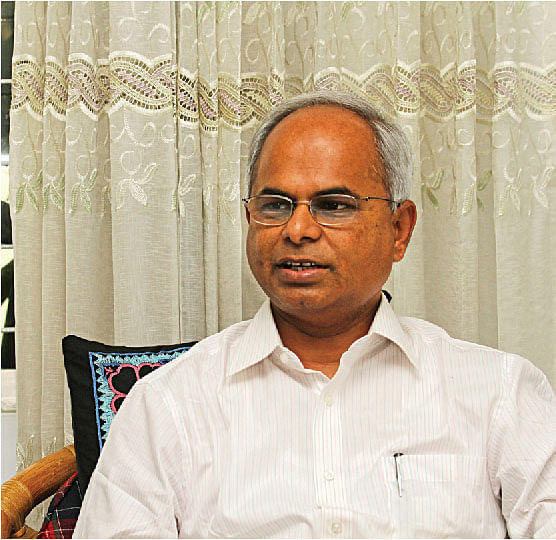
The ministry has appointed several companies to provide the training. One of the companies is Multimedia Content and Communication (MCC) who has provided 50 such training programmes. Ashraf Abir, the CEO of the MCC, says, “The programme is actually for those who will be able to develop mobile phone apps using Java programming language. Most of our trainees are students of computer science and as we have to arrange training in different parts of the country, we have made such requirements.”
The government is not only preparing human resources to achieve digital Bangladesh. Infrastructural development is also on the way. Hi-tech park in Jessore and Kaliakoir of Gazipur are being built. Khan says, “We always encourage the establishment of new software and hardware industries in the country. The goal of establishing these hi-tech parks is to develop ICT-based industries. If anyone wants to establish industries we will provide all sorts of training and capacity-building facilities there. Thus, we are encouraging entrepreneurship in the ICT sector and we also want to attract foreign investment in Bangladesh.”
Bangladesh's ICT sector is a glimmering example of what can be achieved if government's goodwill and a skilled workforce work together. Rapid development in the ICT sector also reflects a rapid growth of skilled manpower which ultimately accelerates the economic growth. Despite many challenges such as political instability, financial crisis and power shortages, many large and ambitious projects are going on to achieve digital Bangladesh. If the government functions at the current pace, we can hope that within a few years the ICT sector will be the largest revenue earner for Bangladesh.
Leading the Digital Revolution
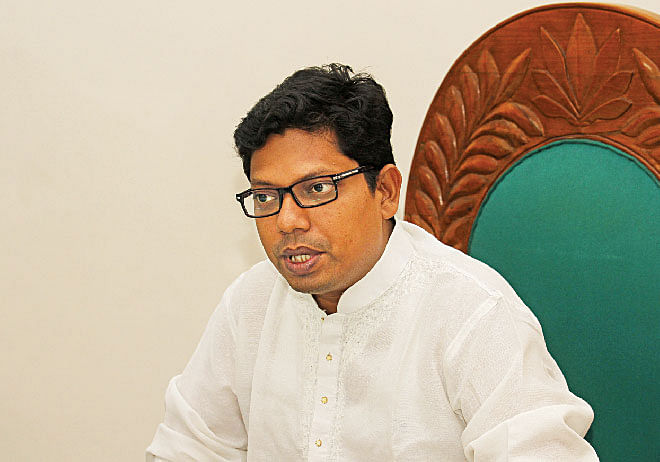
The Star talks to Zunaid Ahmed Palak, State Minister, Ministry of Posts, Telecommunication and Information Technology, about the growth of the ICT sector in Bangladesh
What were your dreams and visions when you took charge of the ICT division?
As a young politician I felt very motivated when the Prime Minister Sheikh Hasina pledged to build a digital Bangladesh on December 12, 2008. After being elected as the youngest parliamentarian, I was appointed by the Premier as a member of the parliamentary standing committee of the Ministry of Posts, Telecommunication and Information Technology. So I got the opportunity to be involved closely with the initiatives taken during the last five years to develop the ICT sector. After taking charge of the ICT division of the ministry, I am able to effectively continue all the ongoing projects. My vision is to utilise our country's experts of the ICT sector to give people a knowledge and technology based Bangladesh.
E- governance is an essential part of achieving digital Bangladesh. What are your steps in this regard?
Establishing e-governance is one of our top most priorities. We have launched a project to include all our government offices and services into one virtual infrastructure called Bangla Govnet. To establish e-governance, we will ensure internet connection in all our districts and Upazilas by 2014. And for the first time we have started e-filing in our ministry which was inaugurated by Sajeeb Wazed Joy, the Prime Minister's ICT Affairs Adviser. Soon it will be expanded to other offices as well. By this project called Bangla Govnet, an inter connection of all the government offices up to Upazila level will be established. So we actually have no obstacles to establish e-governance.
One of the most discussed initiatives of your ministry is the amendment of the ICT Act in 2013. We received a range of reactions from different sectors. What is your opinion on the recent amendment?
We actually updated the act, which was first promulgated in 2006. You will agree that law is for humans and every law is changeable. Recently we saw how the ICT can be misused by some anti-social elements, as exemplified by the Ramu incident which resulted from the misuse of social networking sites. We amended the act to prevent these sorts of incidents, and to protect people from cyber crimes. You must have observed that no individual has yet complained that he has been prevented from thinking or freely expressing his views. The act has been amended to prevent cyber crimes, not to stop free speech.
The market of outsourcing is emerging in Bangladesh. Are you considering steps to help more young people?
We have been running many projects to encourage our youths to take up outsourcing jobs. We have been training young people through the Learning and Earning Development programmes to develop their skills to get outsourcing jobs. Through an individual program called Bari Boshe Borolok, we are trying to involve women in the outsourcing job market. Last year the country earned $20 million from the jobs of the trainees, and we are sure that with our increasing efforts it will be one of our biggest income sources.
Finally, I would like to ask about the infra-structural development in this sector. Do you think Bangladesh has the necessary infrastructure to be a “digital country”?
Before 2009 Bangladesh was being shattered by corruption, terrorism and militancy. So we had to start from zero resources. But we have begun work on establishing two hi-tech parks in Gazipur and Jessore. Software and hardware industries working on ICT will be employed for these massive establishments. The parks will be connected by both road and railway to facilitate investors. We have provided high-speed internet connectivity in public universities at no cost. One of my visions is to establish a zone in each district and Upazila where people can avail free high-speed internet. My motto is “It is the youth who will build our dream of digital Bangladesh.”

 For all latest news, follow The Daily Star's Google News channel.
For all latest news, follow The Daily Star's Google News channel. 


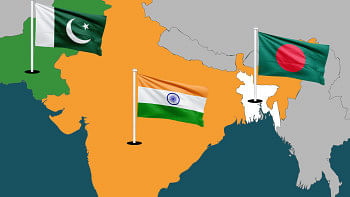
Comments